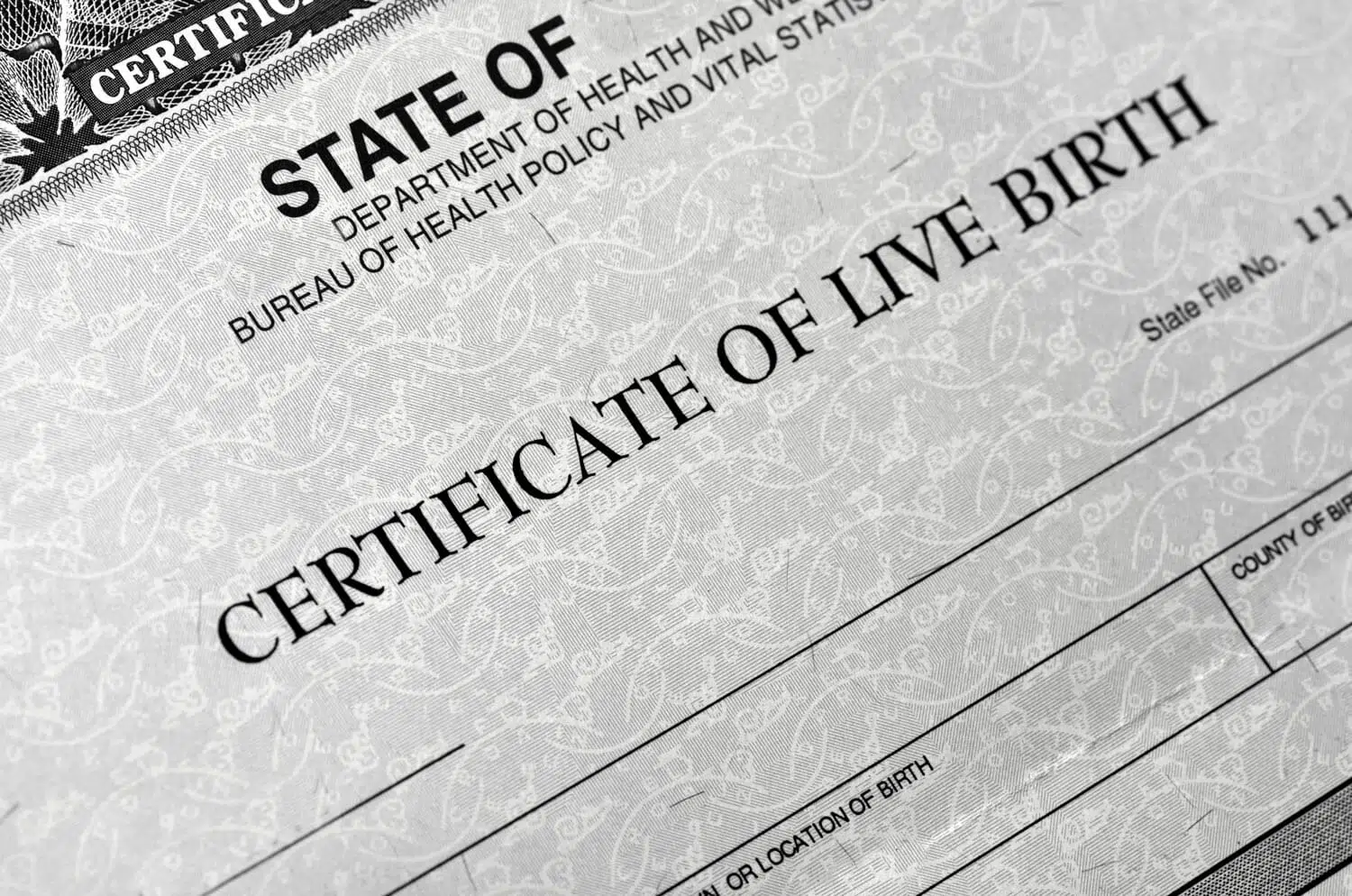Today’s Latin lesson brings us the word “putativus,” which comes from a Latin stem meaning to believe or suspect. From this we get putative, as in Virginia’s putative father registry. Lawyers love Latin. Putative means “generally considered or assumed to be.” As in, you are the child’s putative father.
How Virginia Birth Certificates Work
We think of birth certificates as a legal magic wand, casting certainty over the arrival of a Virginia child. They are not, however; they are products of human effort, with human error always a possibility. Your child’s mother may have accidentally or deliberately withheld your name from a birth certificate, but that does not prevent you from exercising rights as the child’s father.
Code of Virginia § 32.1-257 makes plain that birth certificates are malleable. They may be filled out by all sorts of people:
- In a medical facility, the “person in charge of such institution or an authorized designee”
- Outside a medical facility, the physician in attendance or
- Any other person in attendance at or immediately after the birth, or
- The father
- the mother, or
- the person in charge of the premises where the birth occurred
If this reads like just about anybody can register a birth, you read correctly. A birth certificate is still a legal document, so a stranger off the street cannot pre-empt the mother’s or father’s right to file them, but Virginia wants the paper and is not too choosy about who gets the job done.
Does She Have To List The Child’s Father on the Birth Certificate?
The same law that lets any of about a dozen different people submit a birth certificate to the State Registrar also directs the mother to avoid putting a father’s name on the paper:
“If the mother of a child is not married to the natural father of the child at the time of birth or was not married to the natural father at any time during the ten months next preceding such birth, the name of the father shall not be entered on the certificate of birth without a sworn acknowledgment of paternity, executed subsequent to the birth of the child, of both the mother and of the person to be named as the father.”
She left you off the birth certificate, but you want to assert your rights as the putative father. There’s that word, finally — putative. Use it in a sentence, Alex: “I am the putative father of Shenandoah, a claim I can back up with documents and affidavits.”
Establishing Your Parental Rights
To get any parental rights to your child if your name is not on the birth certificate, you need to start with entry into the Virginia Birth Father Registry, or VBFR. The VBFR may be used to establish paternity if:
- “You are not married to the child’s mother; or
- A court has not determined that you are the child’s father; or
- You have not signed a written agreement acknowledging you are the child’s father; or
- You have not adopted the child.”
When you register at the VBFR, you protect your rights:
- Your paternal rights to be a part of your child’s life
- Your child cannot be adopted without your knowledge
- You preserve opportunities for co-parenting or visiting your child
This is not a legal process, however, meaning you still need to do more to protect your connection to your child. With the aid of a family law attorney, you can establish your paternity despite what a birth certificate says.
You can print out, complete, and sign an Acknowledgement of Paternity (AOP) form with the participation of the child’s mother. This form alone provides important legal protections for you and your child, spelled out in the instructions. Virginia mothers benefit from the father stepping up to use the AOP:
- The father acknowledges the responsibility to provide support for the child
- The father acknowledges a responsibility to pay support until the child turns 18 or beyond if required by law
- The father asserts the right to request visitation with the child
- The father understands the AOP may be used in any legal proceeding regarding this child.
Protect Your Rights with The Firm For Dads
Your attorney can help you gain rights as the putative father, too, by genetic testing, assisting with adoption, or with a voluntary, written statement. Once you start building the legal steppingstones to paternity, you regain and assert all your rights and responsibilities to the child. You get visitation; you can get custody. You can become a family, even if the child’s mother does not want to maintain a relationship with you. Virginia family law is on your side.
To reclaim your rights as a Virginia man, contact The Firm For Men’s paternity attorneys or telephone us at 757-383-9184. We defend men’s rights every day. We assert your rights, defend your honor, and protect your financial interests in all aspects of Virginia family law.

